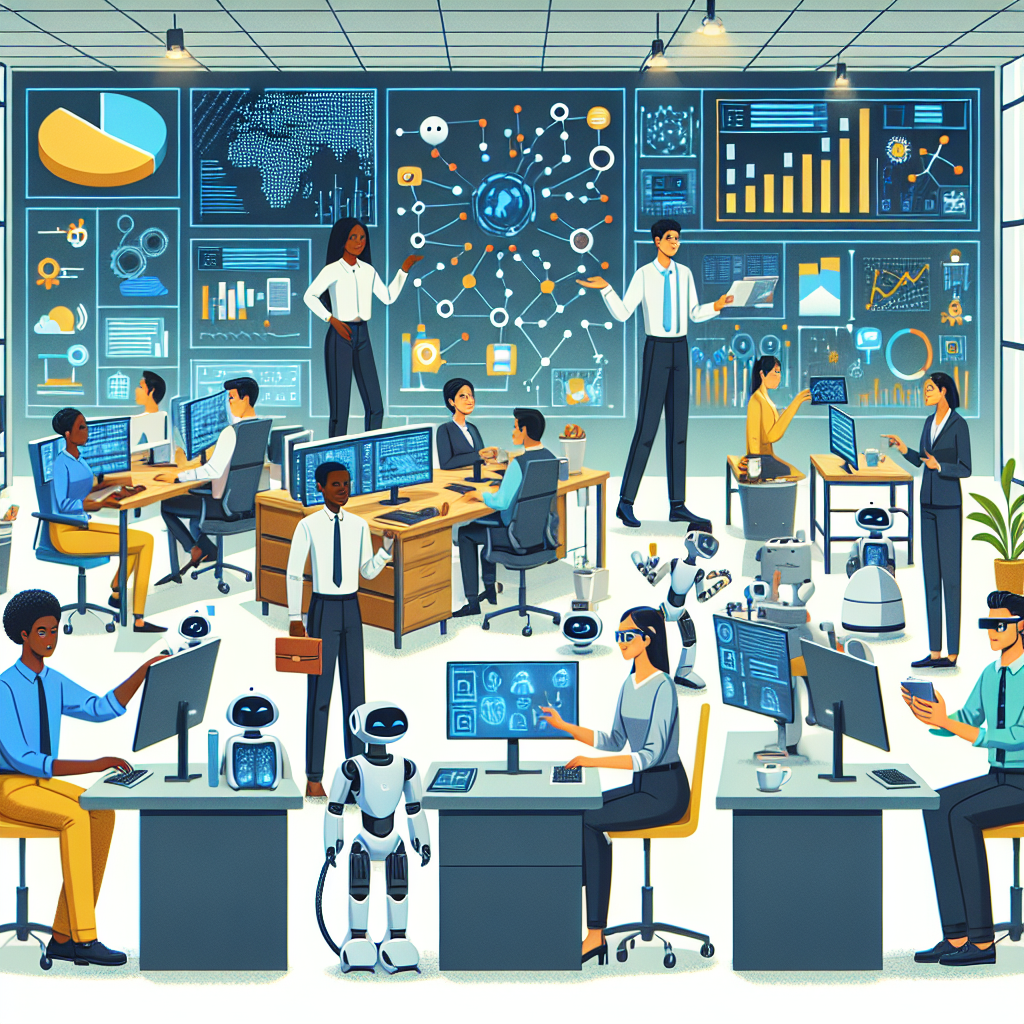AI Transforming Workplace Through Automation
In 1959, General Motors introduced the world’s first industrial robot, Unimate, on its assembly line in New Jersey. What started as a steel arm stacking hot metal has evolved into smart, self-learning systems that now manage scheduling, customer service, and even decision-making. Fast forward to today, and AI transforming workplace through automation is not science fiction—it’s the reality reshaping modern enterprises.
The Rise of AI in Workplace Operations
Artificial Intelligence has moved beyond theoretical models into scalable, real-world applications. Workplaces across industries are integrating AI to handle repetitive, time-consuming tasks, thereby improving efficiency, accuracy, and cost control.
Core areas where AI is driving automation include:
- Customer Service: AI-powered chatbots provide 24/7 responses, eliminate wait times, and handle multi-language support with ease.
- Recruitment: AI tools screen resumes, rank candidates, and even conduct preliminary interviews using natural language processing.
- Data Analysis: Algorithms sift through enormous datasets to identify patterns, enabling more informed decision-making.
- Task Scheduling: Virtual assistants use AI to organize meetings, track deadlines, and manage calendars dynamically.
The Impact on Employee Roles
While many fear that automation will make jobs obsolete, AI is more of an enabler than a threat. By minimizing mundane responsibilities, employees can focus on creativity, strategic planning, and interpersonal communication—areas where human intelligence still reigns.
For example, in finance, AI automates fraud detection and report generation, allowing analysts to spend more time on forecasting and strategy. In customer service, AI handles routine queries, empowering agents to handle complex client needs more effectively.
Industries at the Forefront
Here are a few sectors where AI is accelerating digital transformation through automation:
- Healthcare: AI supports diagnostics, patient scheduling, and follow-up communication, streamlining administrative workflows.
- Manufacturing: Predictive maintenance and robotic process automation improve uptime and reduce human error.
- Retail: Inventory tracking, personalized recommendations, and automated checkouts are now typical thanks to AI.
Challenges to Address
Despite its many benefits, adopting AI isn’t without hurdles. Ethical concerns, data privacy regulations, and skill gaps pose significant challenges. Organizations need to invest in upskilling their workforce and implementing transparent AI models to build trust and visibility.
Preparing for an AI-Driven Future
Companies that want to stay competitive must act now. Embracing AI as a collaborative tool rather than a job replacement strategy will help foster innovation and long-term resilience. Employees should be empowered with AI literacy and agile training programs that equip them for evolving roles.
According to a McKinsey report, businesses that prioritized AI adoption have already seen a 30-50% increase in productivity across departments—proof of AI’s tangible influence.
Final Thoughts
AI transforming workplace through automation is no longer a trend—it’s a cornerstone of future-ready business. By equipping teams with AI tools and nurturing a forward-thinking culture, organizations can unlock new levels of efficiency and human potential.

